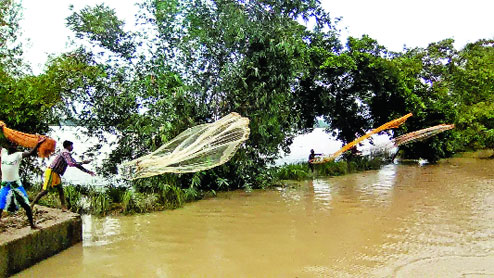
Darjeeling: Sikkim, which was declared as the first organic state in the country, has decided to ban vegetables and fruits from other states in a phased manner from March 31 next year as part of the government's plans to create a unique brand identity for the hill state.
The state was declared organic in 2015 and in an effort to further strengthen its brand - seen as a boost for its tourism sector - the state cabinet approved the ban on Thursday (see chart).
Somanth Poudyal, agriculture minister of Sikkim, speaking to The Telegraph said: "It is the vision of our chief minister, Pawan Kumar Chamling, to make our state self-sufficient, encourage healthy eating, make the younger generation entrepreneurs and also promote clean environment. We relentlessly worked for 12 years since 2003 to make Sikkim fully organic and now we are taking the next step forward."
Following the decision to go organic, agricultural/horticulture produce in Sikkim did not use fertilisers or other chemicals and farmers relied only on cow dung and natural insecticides.
The decision to be self-reliant in fruits and vegetables is likely to create a separate brand identity.
"The organic brand for a growing health-conscious society is definitely going to give a boost to the tourism sector... Local farmers are also expected to benefit a lot. It would be a win-win situation for all," said an observer.
Sikkim has a population of 6.1 lakh and according to the minister, the total annual vegetable requirement of the state is 62,000 tonnes.
"Last year we produced more than 80,000 metric tonnes of vegetables. We are aware that there is a good tourist flow and we are trying to increase our production on a war footing," said Poudyal.
The 104-day shutdown in Darjeeling hills - the only link to the state with the rest of the country passes through the district - seems to have pushed the self-reliance drive. In fact, the government is using the experience during the strike to gauge its preparedness.
"There was no entry of vegetables (from other states) during that period but there was no shortfall either," the minister said.
The government has prepared a "crop calendar" creating farming clusters depending on the climatic condition to ensure round-the-year production. "We are distributing seeds, providing subsidies to young entrepreneurs, introducing refrigerated vans, setting up cold storages and completed constructing vegetable outlets and kishan bazaars," said Poudyal.
As of now 76,000 hectares of land is under organic cultivation in the Sikkim. "Sikkim is fully organic and you would not want to eat inorganic food when you visit the state. This initiative is also a gift to the country and an encouragement to our people to go back to their land," said Poudyal.
Vegetables and fruits are largely supplied to Sikkim from Bengal but traders in Siliguri said the latest decision would not have much of an impact in their business.
"Our daily turnover is around Rs 40 lakh, of which around 10 per cent (Rs 4 lakh) comes from Sikkim's buyers," said Tapan Saha, senior adviser at the Siliguri Regulated Market Fruits and Vegetable Commission Agents' Association.
ADDITIONAL REPORTING BY BIRESWAR BANERJEE IN SILIGURI










